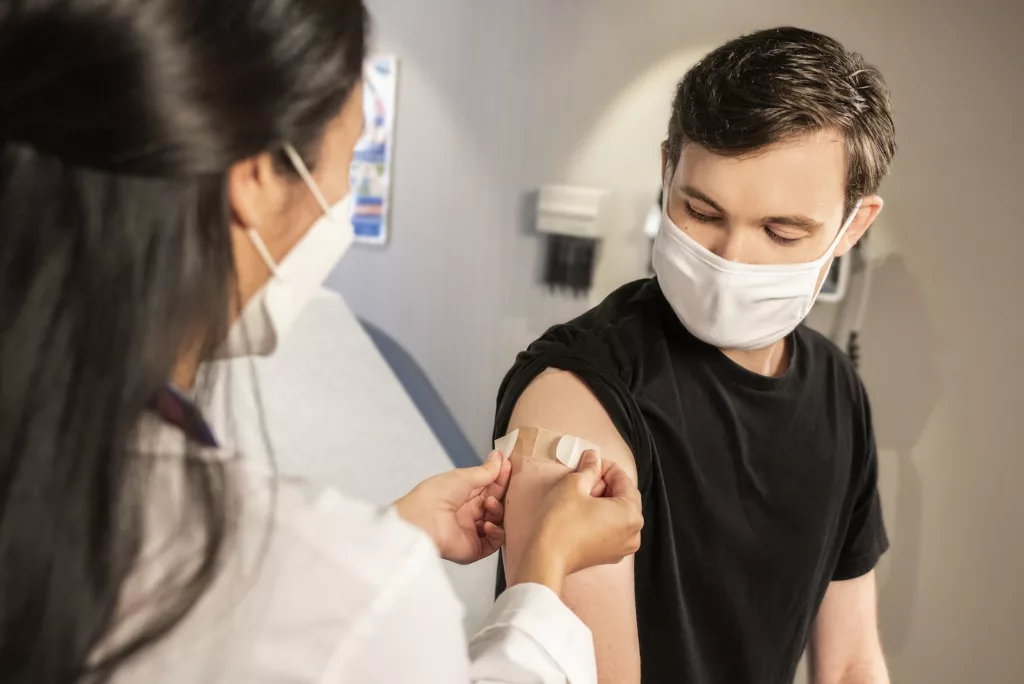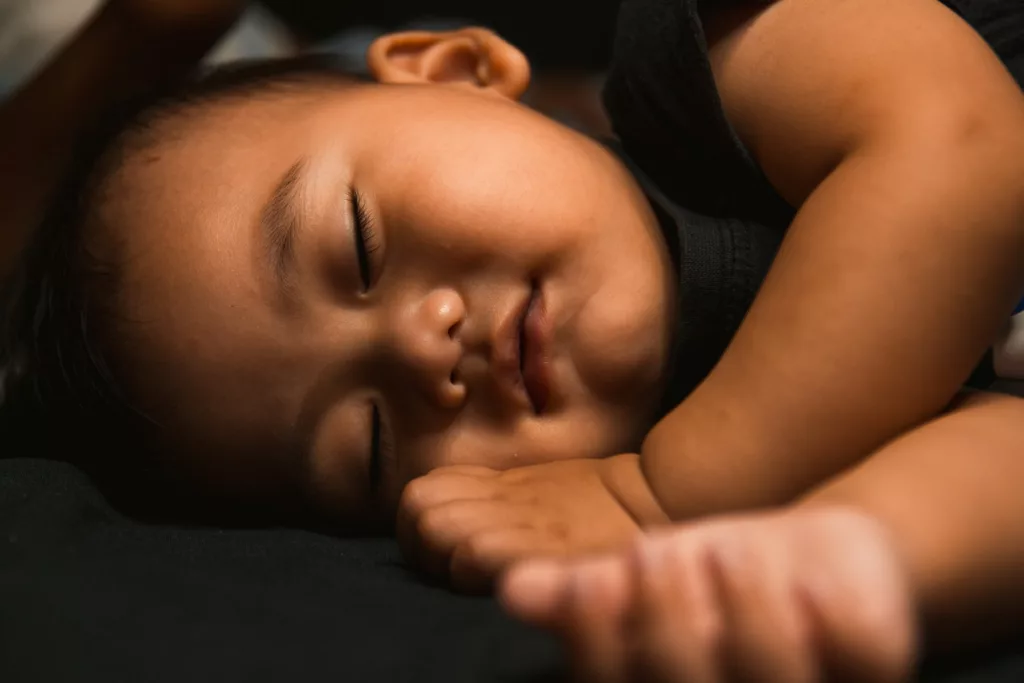“Exploring the Causes and Treatment of Mumps in Children” is a comprehensive article that falls under the broad umbrella of kids’ health. This informative piece covers a wide range of health topics specifically related to children, including anxiety, asthma, bedwetting, chickenpox, and various other ailments. It provides a symptom checker and a health service finder tool, allowing parents and caregivers to effectively navigate their child’s healthcare needs. This article aims to equip readers with a deeper understanding of mumps in children, its causes, symptoms, and available treatment options. Overall, it serves as a reliable resource for those seeking accurate information and guidance in safeguarding their children’s well-being.
Causes of Mumps
Mumps is caused by a viral infection. It is primarily caused by the mumps virus, which is a member of the paramyxovirus family. The virus is spread from person to person through respiratory droplets. When an infected individual coughs or sneezes, tiny droplets containing the virus can be inhaled by others nearby, leading to the spread of the infection.
Lack of vaccination is another major cause of mumps outbreaks. Immunization plays a crucial role in preventing the spread of the virus and reducing the incidence of mumps cases. When individuals are not vaccinated, they are at a higher risk of contracting the infection and spreading it to others.
Crowded living conditions can also contribute to the spread of mumps. In places where individuals live in close contact with each other, such as dormitories, boarding schools, and military barracks, the virus can easily spread from one individual to another. Close proximity increases the chances of respiratory droplets containing the virus reaching susceptible individuals.
Poor hygiene practices can also play a role in the spread of mumps. Individuals who do not practice good hygiene, such as not washing their hands regularly or covering their mouths while coughing or sneezing, are more likely to spread the virus to others. Effective hygiene practices, such as regular handwashing, can help reduce the chances of mumps transmission.

Symptoms of Mumps
The symptoms of mumps can vary from mild to severe. The most common symptom is swollen salivary glands, which can cause pain and tenderness in the face and jaw area. Other symptoms of mumps include fever, headache, muscle aches, fatigue, and loss of appetite.
Pain while chewing or swallowing is another common symptom of mumps. The swelling of the salivary glands can make these activities painful and uncomfortable. Sore throat and difficulty swallowing may also be experienced.

Prevention of Mumps
Preventing mumps is crucial to reduce the incidence of the infection. The following measures can help prevent the spread of mumps:
- Vaccination: The MMR (measles, mumps, rubella) vaccine is highly effective in preventing mumps. It is recommended that individuals receive two doses of the vaccine, usually given in childhood. Vaccination not only protects the vaccinated individual but also contributes to herd immunity, reducing the overall spread of the virus in the community.
- Maintaining good hygiene: Regular handwashing with soap and water can help prevent the spread of mumps and other infectious diseases. Covering the mouth and nose while coughing or sneezing, using tissues or elbows, can also minimize the release of respiratory droplets containing the virus.
- Avoiding close contact with infected individuals: If someone is known to have mumps, it is important to avoid close contact with them. This includes avoiding sharing utensils, drinks, or personal items with infected individuals.
- Covering mouth and nose while coughing or sneezing: When an individual with mumps coughs or sneezes, covering their mouth and nose can prevent the respiratory droplets containing the virus from spreading to others.
- Regular handwashing: Handwashing with soap and water for at least 20 seconds is an effective way to prevent the spread of mumps. If soap and water are not available, alcohol-based hand sanitizers can be used as an alternative.

Complications of Mumps
While mumps is usually a self-limiting illness, it can sometimes lead to complications, especially in teenagers and adults. Some of the complications associated with mumps include:
- Orchitis (inflammation of the testicles) in males: Orchitis is the most common complication of mumps in males who have reached puberty. It can cause pain, swelling, and tenderness in one or both testicles. In some cases, orchitis can lead to infertility.
- Oophoritis (inflammation of the ovaries) in females: Mumps can cause inflammation of the ovaries in females, leading to abdominal pain and potentially affecting fertility.
- Meningitis: Mumps can sometimes result in meningitis, which is an inflammation of the membranes surrounding the brain and spinal cord. Symptoms of meningitis include severe headache, stiff neck, and sensitivity to light.
- Encephalitis: In rare cases, mumps can cause encephalitis, which is inflammation of the brain. Encephalitis can lead to neurological symptoms such as seizures, confusion, and drowsiness.
- Pancreatitis: Mumps can cause inflammation of the pancreas, a gland located in the abdomen. Pancreatitis can cause severe abdominal pain, nausea, and vomiting.
- Deafness: Mumps can occasionally lead to permanent hearing loss, although this complication is rare.
Treatment of Mumps
Currently, there is no specific antiviral treatment for mumps. Treatment for mumps primarily focuses on supportive care to help manage the symptoms and prevent complications.
Over-the-counter pain relievers, such as acetaminophen or ibuprofen, can help reduce fever and alleviate pain associated with mumps. Rest and plenty of fluids are important to ensure the body can recover from the infection. Cold or warm compresses applied to swollen glands can provide relief.
Individuals with mumps are advised to avoid acidic or sour foods, as these can stimulate the salivary glands and potentially worsen the swelling and pain. A soft diet, consisting of easy-to-chew foods, may be recommended to minimize discomfort.
Isolation and quarantine are crucial to prevent the spread of mumps to others. Infected individuals should avoid close contact with others, especially children and individuals who are not immune to mumps.
In some cases, antibiotics may be prescribed if a bacterial infection is present alongside mumps. However, antibiotics do not treat the underlying viral infection.
- Rest is Key: Your body needs energy to fight off the virus, so plenty of rest is crucial. We’re talking about staying in bed, minimizing physical activity, and just giving your body a break.
- Hydration: Staying hydrated is super important. Drink plenty of fluids like water, juice, or broth. Avoid acidic drinks like orange juice, which can irritate swollen glands.
- Pain Relief: Over-the-counter pain relievers like acetaminophen or ibuprofen can help with the discomfort and reduce fever. Just be sure to follow the dosage instructions.
- Warm or Cold Compresses: Applying these to the swollen areas can provide some relief. Some people prefer a warm towel, others a cold pack. See what works for you.
- Soft Foods: If chewing hurts, go for soft foods like yogurt, soup, or mashed potatoes. Avoid foods that require a lot of chewing.
- Avoid Spreading the Virus: Mumps is contagious, so keep your distance from others, especially in the first few days of symptoms. Regular hand washing and not sharing utensils or cups is also important.
- Check with a Doctor: Especially if you’re not sure it’s mumps or if symptoms are severe, it’s always a good idea to consult a healthcare professional.
Remember, most people recover from mumps without any serious problems, but it’s always better to be cautious and take good care of yourself.

When to Seek Medical Attention
In most cases, mumps will resolve on its own without complications. However, certain symptoms may indicate a need for medical attention. It is important to seek medical attention if the following symptoms occur:
- Persistent high fever: A fever that persists for more than a few days or reaches a high temperature should be evaluated by a healthcare professional.
- Severe headache: Intense or severe headache, especially if accompanied by other neurological symptoms, should be assessed by a healthcare professional.
- Stiff neck: A stiff neck can be a sign of meningitis, which requires immediate medical attention.
- Confusion or disorientation: Mental confusion or disorientation should be evaluated promptly.
- Difficulty breathing or swallowing: Difficulty breathing or swallowing can indicate a serious complication of mumps and requires immediate medical attention.
- Severe abdominal pain: Severe or persistent abdominal pain should be assessed by a healthcare professional.
- Unusual drowsiness or lethargy: Excessive sleepiness or lethargy that is out of the ordinary should be evaluated by a healthcare professional.
- Signs of dehydration: Symptoms of dehydration, such as dry mouth, decreased urine output, and excessive thirst, should be addressed by a healthcare professional.
Home Remedies for Mumps
In addition to supportive care and medical treatment, there are some home remedies that may help alleviate the symptoms of mumps:
- Warm saltwater gargle: Gargling with warm saltwater can help soothe a sore throat and reduce discomfort.
- Herbal teas for symptom relief: Herbal teas, such as chamomile or peppermint, can help alleviate fever, headache, and muscle aches.
- Honey and lemon mixture: Mixing honey and lemon in warm water can provide relief for sore throat and cough associated with mumps.
- Chamomile compress: Applying a chamomile compress to swollen glands can help reduce inflammation and pain.
- Proper rest and sleep: Getting adequate rest and sleep is essential for the body to heal and recover from the infection.
- Good nutrition: Eating a balanced diet that includes nutrient-rich foods can support the immune system and aid in recovery.
It is important to note that these home remedies should be used in conjunction with medical treatment and under the guidance of a healthcare professional.

Mumps and Vaccination
Vaccination plays a crucial role in preventing mumps and its complications. The MMR (measles, mumps, rubella) vaccine is a safe and effective way to protect against mumps. Here are some important points regarding mumps vaccination:
- Importance of MMR vaccine: The MMR vaccine protects against three diseases – measles, mumps, and rubella. Vaccination is vital to prevent the spread of these diseases and reduce the risk of complications.
- Vaccine schedule and dosage: The MMR vaccine is typically given in two doses. The first dose is usually administered at 12 to 15 months of age, followed by a second dose at 4 to 6 years of age. Adequate vaccination is essential for optimal protection.
- Effectiveness and side effects: The MMR vaccine is highly effective in preventing mumps. The vaccine has been extensively studied and has a proven safety record. Like any vaccine, there can be mild side effects, such as fever or soreness at the injection site. Severe side effects are extremely rare.
- Herd immunity: Vaccination not only protects the individual who receives the vaccine but also contributes to herd immunity. Herd immunity occurs when a large percentage of the population is immune to a disease, preventing its spread and protecting vulnerable individuals who cannot be vaccinated.
It is important to follow the recommended vaccination schedule and guidelines provided by healthcare professionals and public health authorities to ensure maximum protection against mumps.

Conclusion
Mumps is a viral infection that can cause pain and discomfort, especially due to the swelling of the salivary glands. It can be easily transmitted through respiratory droplets and can spread rapidly in crowded living conditions or with poor hygiene practices. Vaccination is the most effective way to prevent mumps and its complications. Maintaining good hygiene, avoiding close contact with infected individuals, and practicing proper respiratory etiquette can also help reduce the spread of the virus. While most cases of mumps resolve on their own with supportive care, complications can occur, and seeking medical attention is important if certain symptoms arise. Home remedies can provide some relief from symptoms, but should be used alongside medical treatment. Overall, understanding the causes, symptoms, diagnosis, prevention, complications, and treatment of mumps is essential in promoting the health and well-being of children.
